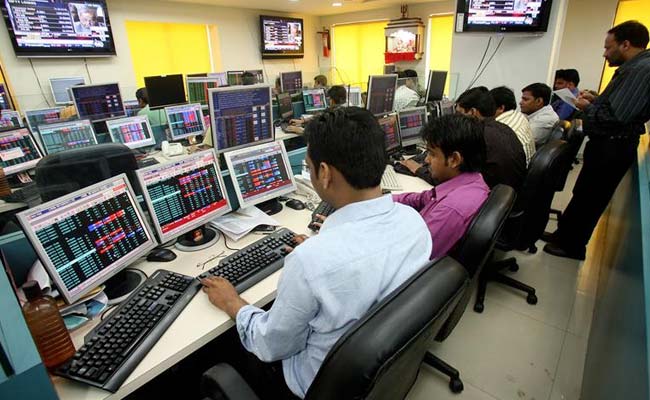China: Asian markets fell on Monday after a US-led strike on Syrian targets fuelled fresh geopolitical concerns over the tinderbox Middle East, though analysts said investors were hopeful the crisis would not escalate.
The US, Britain and France carried out their hit at the weekend on alleged chemical weapons facilities, in response to what they say was a toxic gas attack by the Russia-backed Assad regime a week before.
While there was broad support for the mission, Moscow condemned it as illegal and warned it would provoke “chaos” in international relations.
The Syria crisis, which has seen the West’s relationship with Russia grow increasingly frosty, has encompassed other regional players including Iran, Saudi Arabia and Israel, and led to talk of a military standoff.
It also comes against the backdrop of a trade spat between the United States and China, which many fear could hammer the global economy if the two sides push through threatened tit-for-tat tariffs on hundreds of billions of dollars of goods.
Most markets were down on Monday but the losses were limited.
Hong Kong fell more than one percent, while Shanghai slipped 0.8 percent, with traders there awaiting the release Tuesday of first-quarter Chinese growth data. Singapore fell 0.4 percent and Seoul was off 0.1 percent, while Wellington and Taipei also fell.
‘Mission accomplished’
However, Tokyo ended the morning session in positive territory, while Sydney edged up 0.4 percent.
“The markets are taking the surgical strike at the heart of Syria’s chemical weapon programme in their stride as traders had priced in this outcome with a high degree of probability,” Stephen Innes, head of Asia-Pacific trade at OANDA, said in a note.
“Given the universal condemnation (of the chemical attack) and overwhelming support for this military action, it’s improbable there will be retaliation from Russia or Iran, Syria’s principal backers, and for the time being, the US-UK-France alliance is considering this a mission accomplished.”
And Callum Henderson, a Eurasia Group managing director in Singapore told Bloomberg TV: “There was a significant fear of potential escalation; that hasn’t happened so far.”
But he added that “it remains to be seen how long this market rally lasts on the back of this specific factor — whether or not, or when, Russia retaliates”.
The troubles in the oil-rich Middle East have helped push the price of crude to highs not seen since the end of 2014, though both main contracts slipped in early trade Monday.
And the dollar continues to hold its own against the safe haven yen despite the uncertainty, while gold — another go-to asset in times of turmoil — is sitting near two-year highs.
Key figures around 0300 GMT
Tokyo – Nikkei 225: UP 0.3 percent at 21,834.42 (break)
Hong Kong – Hang Seng: DOWN 1.1 percent at 30,484.13
Shanghai – Composite: DOWN 0.8 percent at 3,133.74
Euro/dollar: UP at $1.2341 from $1.2338 at 2100 GMT on Friday
Dollar/yen: UP at 107.37 yen from 107.35
Pound/dollar: UP at $1.4259 from $1.4241
Oil – West Texas Intermediate: DOWN 59 cents at $66.80 per barrel
Oil – Brent North Sea: DOWN 71 cents at $71.87 per barrel
New York – Dow: DOWN 0.5 percent at 24,360.14 (close)
London – FTSE 100: UP 0.1 percent at 7,264.56 (close)
AFP

